In a country that is castle-dense and forest-thick, populated by grand architecture and cool cities, it is all but impossible to curate a bucket list that strikes the right notes for every personality and travel type. This collection of destinations was chosen by our Czech friends and colleagues who say that these are the places they revisit time and again, the destinations that are deeply connected to their sense of national identity and what it means to be Czech:
Karlštejn
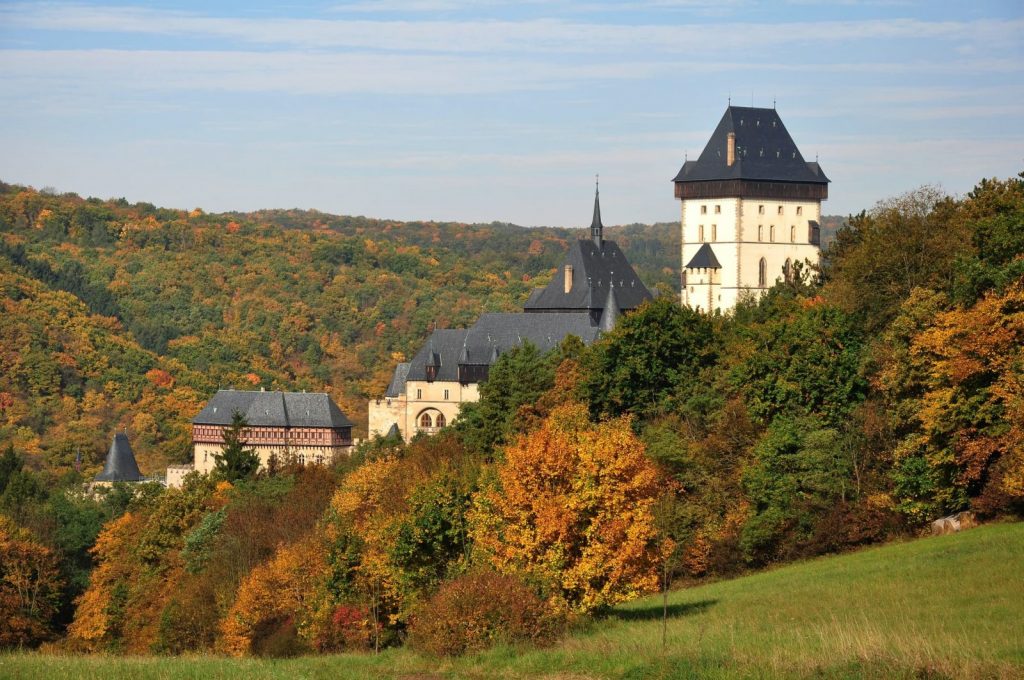
One of the most visited castles in the Czech lands, this stronghold of Holy Roman Emperor Charles IV, was erected in 1348 to safeguard the crown jewels and his vast collection of religious relics. Embedded in the dramatic landscape of the Bohemian Karst, hiking the tiny villages and lush forest surrounding the area, not to mention visiting a rustic pub or two before touring this Gothic stunner, is about as Czech as it gets.
Read more here: Visiting the Czech Republic’s prettiest autumn destination
Posázavský trail
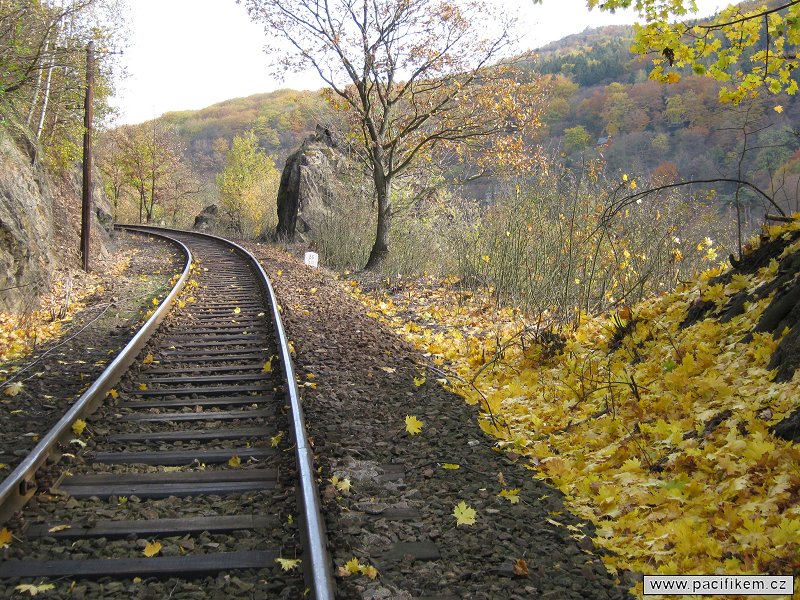
Posázavský Pacifik is the name given to a historical train (or hiking route) that follows the Sázava River, which courses through the hilly countryside of Central Bohemia, southeast of Prague. The route’s name originated with the famed Czech tramping subculture (skillfully captured in this documentary) which bestowed various cottages along the trail with names from the Pacific Coast of America. An easy day trip, particularly this time of year, for the sweeping views along the river and pretty little villages you can spot along the way.
Read more here: 3 autumn fall foliage walks and here Relive the golden age of Czech train travel
Říp
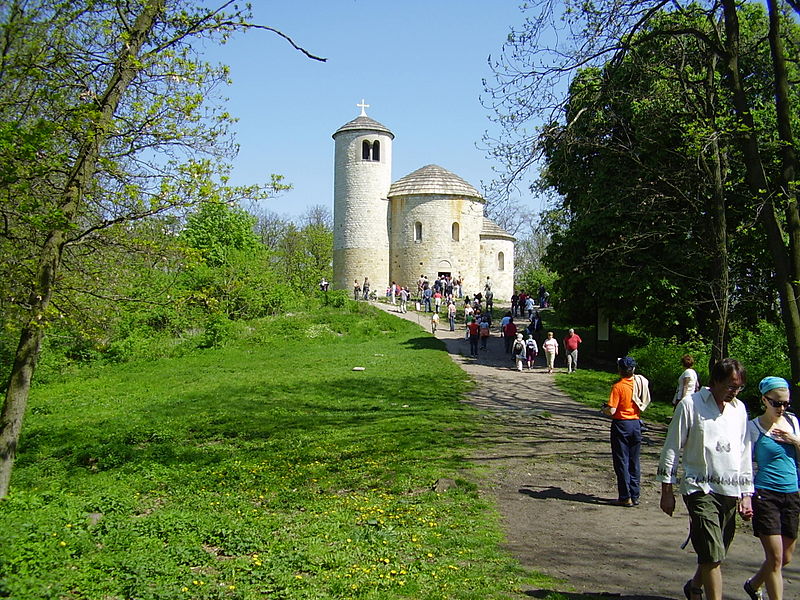
Mount Říp should be on any bucket list of places to visit in the Czech Republic. Not only is it an ancient pilgrimage site (“What Mecca is to a Mohammedan, Říp is to a Czech”) its 459-meter summit offers seemingly endless views of nearly one-third of Bohemia. One of the oldest structures in the Czech lands, the Romanesque Rotunda of Saint George (est. 1126) is situated on top of Říp mountain.
Read more hereMythical Rip: The mountain all Czechs should climb once
Plzeň
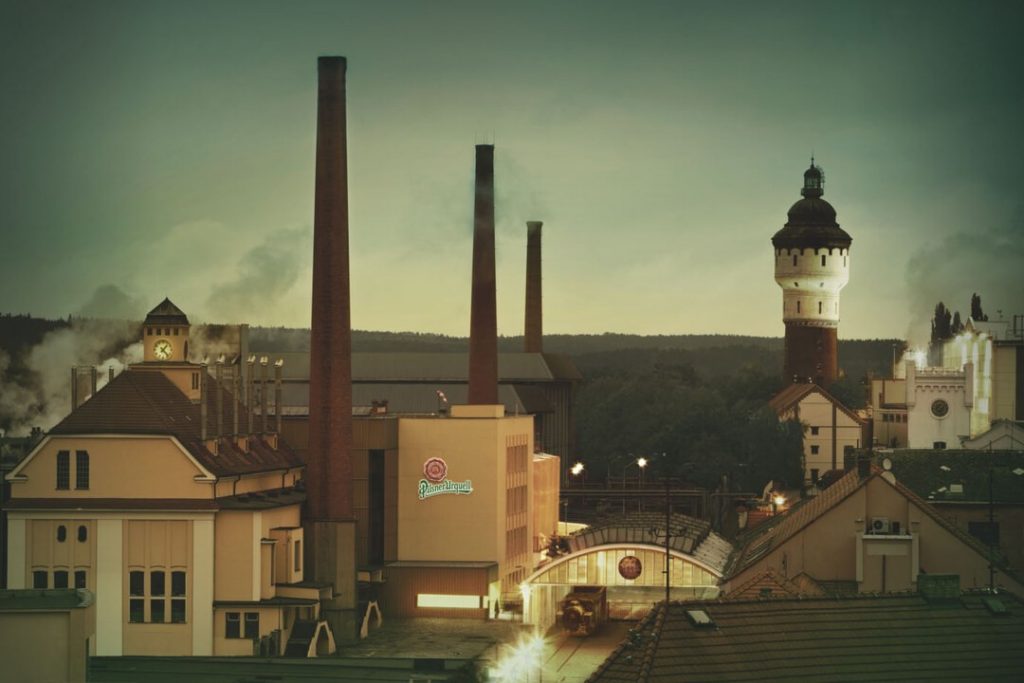
While the first beer in the Czech lands was said to have been made in Prague, it’s the West Bohemian town of Plzeň that can lay claim to being the spiritual home of Czech beer culture. The first batch of Pilsner Urquell beer, created at the Plzeňský prazdroj brewery using just barley malt, local Saaz hops, and lager yeast, was brewed here on October 1842. Plzeň holds great historical significance to Czechs for another reason: this is where the liberation of Czechoslovakia by allied troops on May 1945 ended the Second World War in Europe.
Read more here:Pilsen district & Bohemian forest
Velehrad
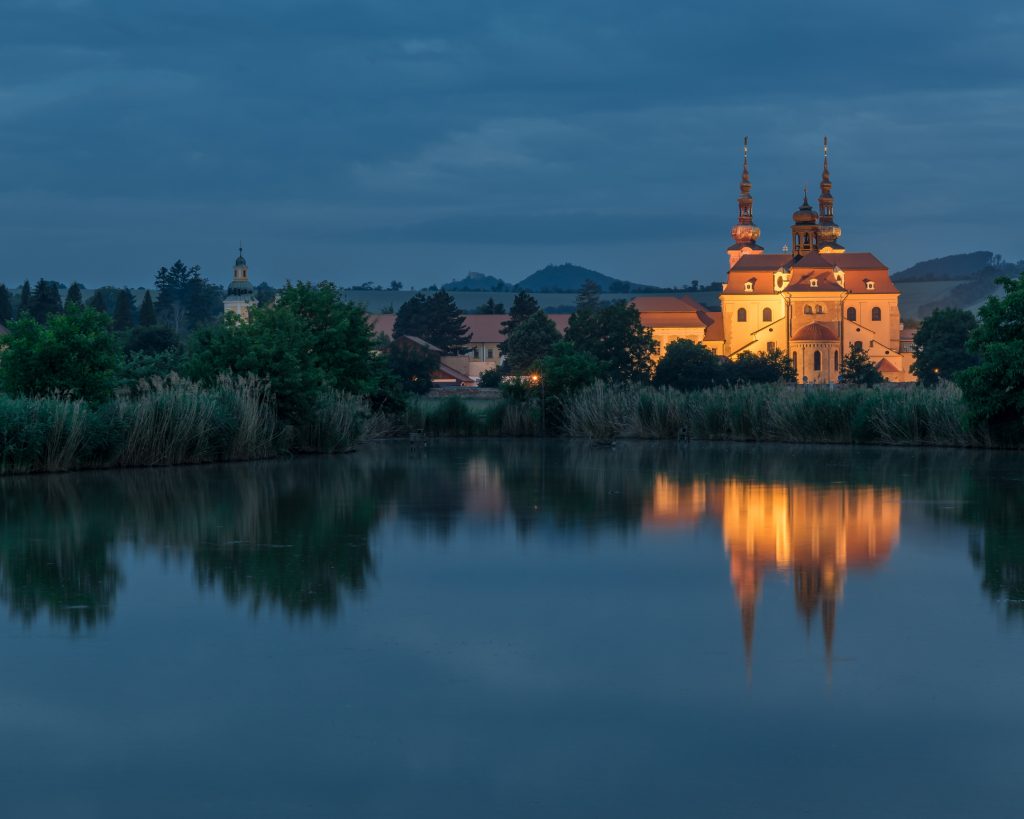
Velehrad is one of the country’s most significant pilgrimage places and was, in the Middle Ages, the capital of the Slavic state of Great Moravia. In the 1990s it was visited twice by Pope John Paul II. A jewel of Moravian Baroque, the three-nave basilica of the Assumption of the Virgin Mary and St. Cyril and Methodius with its richly decorated interior is not to be missed. Nor is the surrounding wine country and the cultural region of Slovácko, or Moravian Slovakia, known for preserving the folk customs and festivals of the Eastern Moravia.
Read more here: 5 weekends for wine lovers
Sněžka
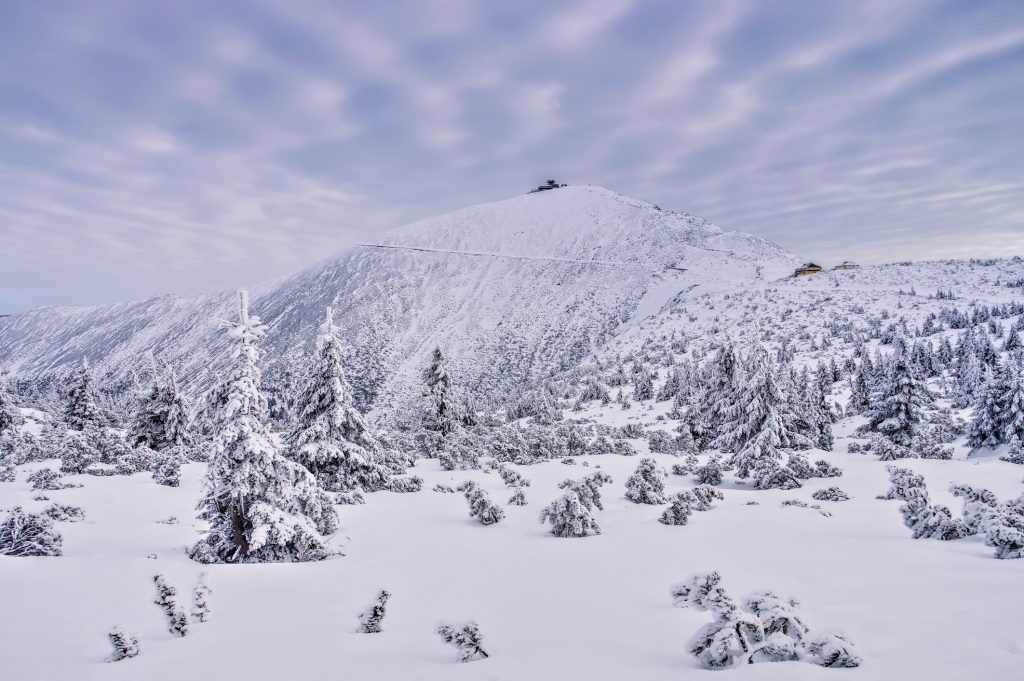
The Krkonoše mountains, the highest in the Czech Republic, include Sněžka (1,602 m), the country’s highest peak. The Krkonoše were declared the first national park in the Czech lands in 1963 forming, with a national park of the same name in Poland, a UNESCO-listed biosphere reserve. The area is said to be protected by the mystical bearded giant Krakonoš, a key figure in Czech fairytales and folklore, who may actually have inspired Tolkien’s Gandalf character. Ski resort town Špindlerův Mlýn attracts crowds during ski season while a treetoplookout offers 45-meter-high views of the forest’s impressive stands of 150-year-old trees.
Read more hereCzech regions: Krkonoše and around
Blaník
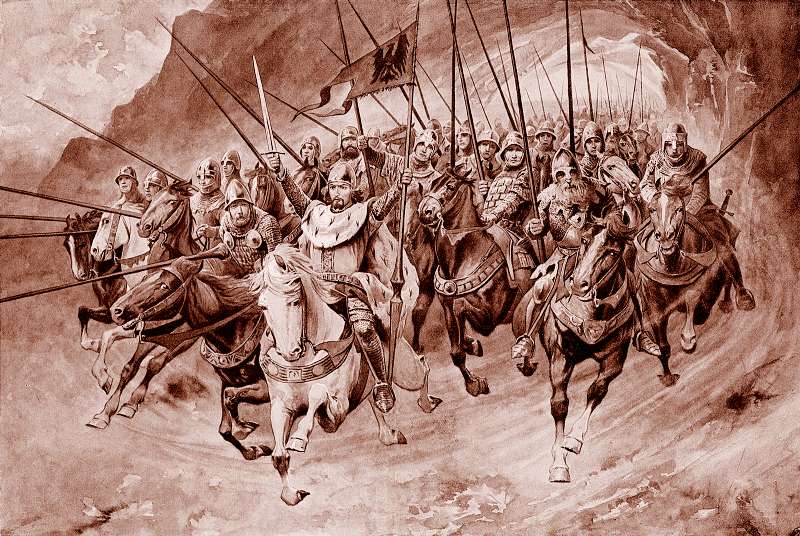
In central Bohemia, south of Vlašim, lies the smallest protected landscape area in the Czech Republic, Blaník. The region is shrouded in myth: Czech legend says that when the motherland is close to ruin, the equestrian statue of King Wenceslas in Wenceslas Square will come to life and raise the army sleeping in Mount Blaník to defend the Czech lands. Czech writers and artists who have romanticized Blaník include Alois Jirásek in his Old Czech Legends and 19th-century landscape painters and Mikoláš Aleš and Věnceslav Černý.
Read more hereCzech Regions: Central Bohemia — South
Karlovy Vary
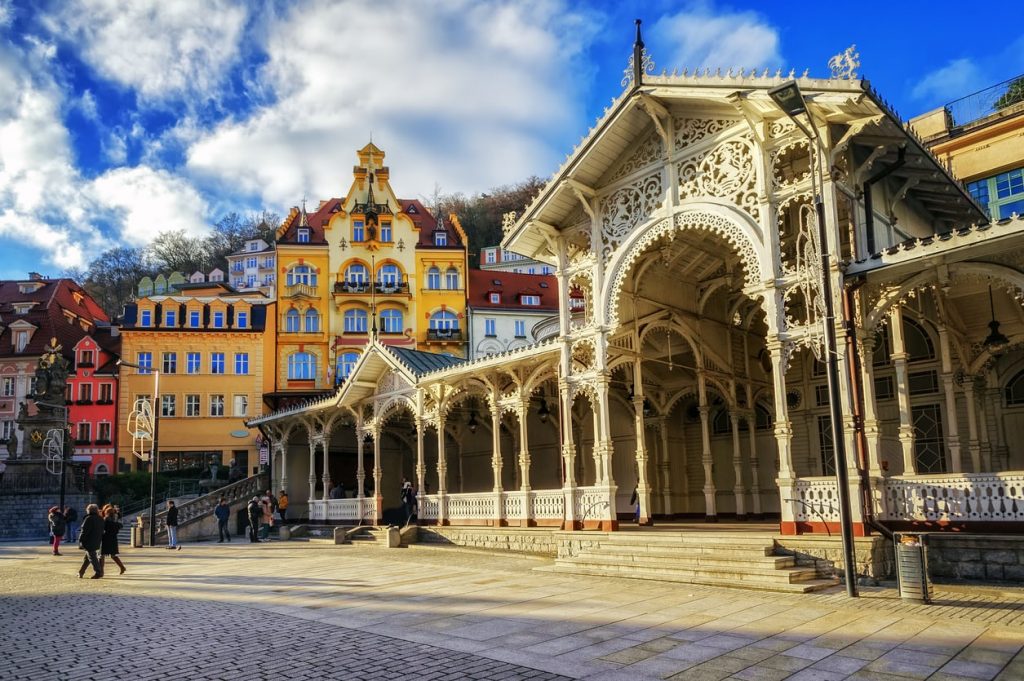
Taking the healing waters from the Czech spa towns of Karlovy Vary, Mariánské Lázně, and Františkovy Lázně, collectively known as the West Bohemian Spa Triangle, is such an integral part of Czech culture that these sites were recently submitted as candidates for UNESCO World Heritage Site status as part of the Great Spas of Europe project. While spa towns that treated ailments using mineral waters and other techniques in the days before modern medicine were once a mainstay throughout Europe, few exist today in their original form.
Read more here:10 easy day-trip destinations
Solenická horeshoe
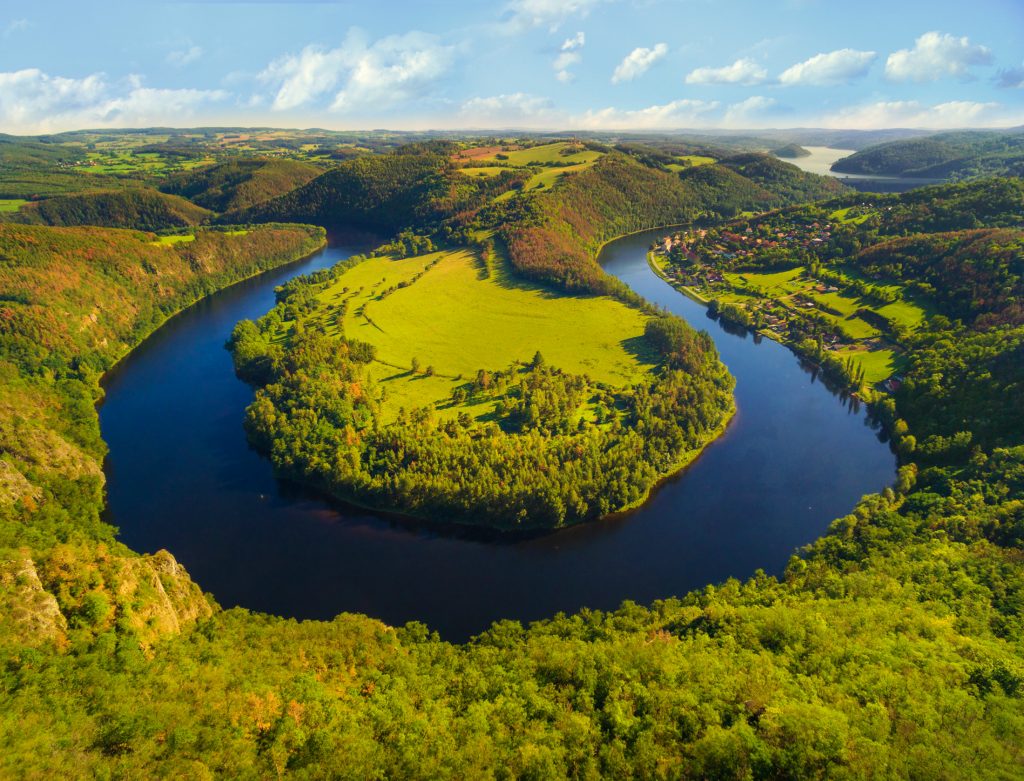
You can’t think about travel in the context of Czech culture and history without paying ode to the meanderings of the Vltava River accompanied by the music of Bedřich Smetana. The 19th-century composer’s magnum opus Má vlast (“My Homeland”) pays homage to the majestic river with its symphonic poem Vltava. Perhaps one of the best places to appreciate the river (and the composer so closely connected to Czech independent statehood), is right at its center, between the dams of Kamýk and Orlík, which represents the picturesque meander of the Vltava Cascade.
Read more here:Follow that bag! How a simple tote inspired legions of travelers!
Šumava
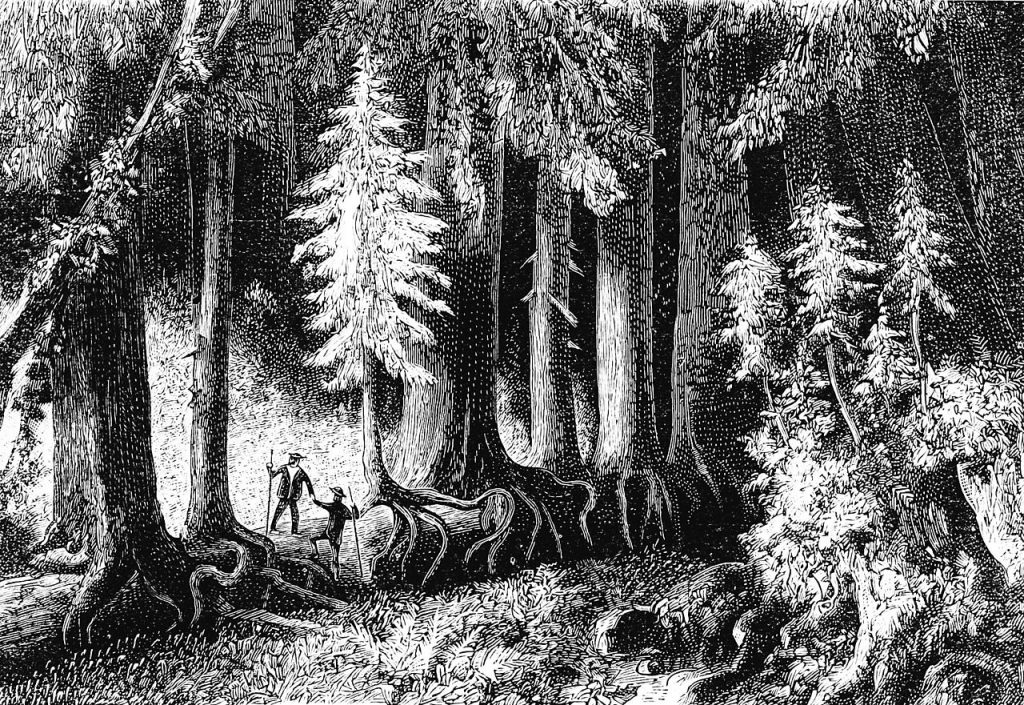
Extending from the Plzeň and South Bohemia in the Czech Republic to Austria and Bavaria in Germany, this centuries-old primeval forest, populated with mysterious peat bogs and crystalline lakes, is as vast as it is poetic. A traveller’s delight for its foreboding medieval border castles and premium vistas, best enjoyed from one of the area’s many lookout towers (see here), it also represents the country’s industrial and craft heritage via the Schwarzenberg Canal and glassworks respectively. Glass museums as well as other attractions are located in Klatovy, Sušice, Kašperské Hory, Vimperk, and Prachatice.
Read more hereCzech regions: Šumava
Tábor
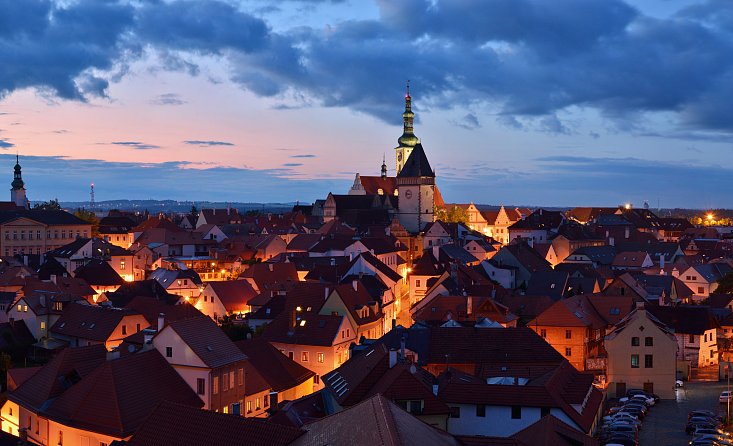
Around 600 years ago, Tábor was home to the Taborites, a sect of the reformist Hussite movement ruled by Jan Žižka, hero of the lengthy Hussite Wars. Every year, the sleepy South Bohemian town hosts a festival where re-enactors play the historical roles that put Tábor on the map: warriors, religious radicals, noblemen, and mercenaries. It’s a wonderful place to reconnect with Czech culture and history year round with its labyrinth of medieval streets, belltower, Baroque monastery, storybook castle, Hussite museum, and Žižka square.
Read more here:Losing your way in Tábor
Vyšehrad
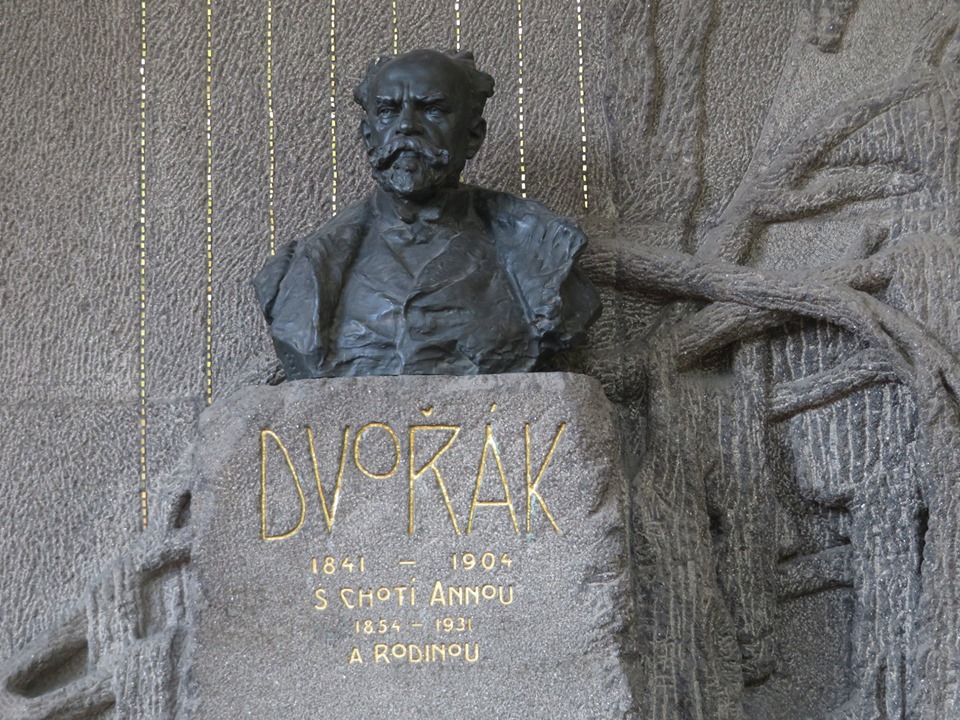
Prague most definitely merits an entry on the list. If you want it all, grave sites of eminent Czechs such as Antonín Dvořák and Božena Němcová, vestiges of ancient Slavic civilization, and even a nod to the legacy of Czech cubism in modern architecture, Vyšehrad’s got it. Its history dates back to the 10th century, when it was the seat of Přemyslid dynasty. Legend has it that Princess Libuše, the founder of the dynasty, stood on the rocky outcrop of Vyšehrad and looked toward where Prague Castle now stands, prophesying the future of the Czech nation.
Read more here:Prague’s Vyšehrad offers relaxing sightseeing away from the tourist crowds












 Reading time: 6 minutes
Reading time: 6 minutes 
































